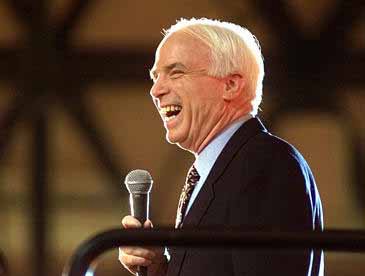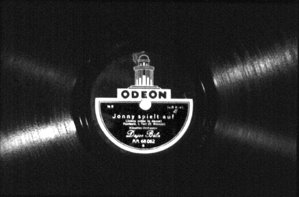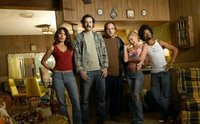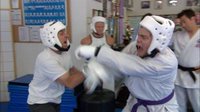 According to my dictionary, "patriotism" means the following: "Love of and devotion to one's country."
According to my dictionary, "patriotism" means the following: "Love of and devotion to one's country."According to George Bush's administration and his angry band of bloggers, "patriotism" means not criticizing the administration for its conduct during the selling of this war (Al Qaeda connection to Iraq, WMDs, and Saddam buying nuclear materials in Niger). It also means not saying anything that could lead the rest of the world to think that people in the U.S. have a lack of trust in this administration.
When the war was popular, Bush and his minions made it known that this was his war, and that the Democrats were weak. Elect John Kerry, Bush said, and you will be hurting America's war efforts. Now that Bush's popularity hovers around 36% and the war in Iraq is deeply unpopular, now that a majority of Americans wish that we had not waged war on Iraq, Bush is claiming that critics of the way in which we were lead into war give aid and comfort to the enemy and put our troops in further harm's way. We should all just pull together, the unpopular President says:
"The stakes in the global war on terror are too high, and the national interest is too important, for politicians to throw out false charges. These baseless attacks send the wrong signal to our troops and to an enemy that is questioning America's will. As our troops fight a ruthless enemy determined to destroy our way of life, they deserve to know that their elected leaders who voted to send to them to war continue to stand behind them."This is utter horse hockey. And as someone who supported Bush and Blair based on my belief that they would never cook the books for the State of the Union or Colin Powell's UN speech, and who feels foolish now as I watch them drag the reputation of the United States through the mud because of its torture policies and its decision to thumb its nose at the rest of the world, it infuriates me.
Other people in the blogosphere had a different reaction. The wildly popular Glenn "Instapundit" Reynolds wrote the following:
"The White House needs to go on the offensive here in a big way -- and Bush needs to be very plain that this is all about Democratic politicians pandering to the antiwar base, that it's deeply dishonest, and that it hurts our troops abroad.Reynolds is claiming, therefore, that Americans who criticize the Bush administration's pre-war advertising campaign about WMDs are acting out of hate and treason toward the United States. Reynolds does not believe the people who say that they supported the war previously but now think that the administration appears to have been so hell-bent on going to Baghdad that it cooked the books and engaged in an unprecedented and successful PR campaign to win over the hearts and minds of the American people still reeling from the September 11 attacks. He think that they are lying. He thinks that they hate America.
And yes, he should question their patriotism. Because they're acting unpatriotically."
 Because I am one of those people, and because Reynolds thinks that he can look into my heart, I guess he knows that I am about to quote Elvis Costello:
Because I am one of those people, and because Reynolds thinks that he can look into my heart, I guess he knows that I am about to quote Elvis Costello:"Are you a man now you wear a man's hat?
Are you a man now or are you a rat?
You go to church quiet as a mouse
You're a big cheese now in the workhouse
With these vulgar fractions of the treble clef
I wish you luck with a capital 'F'"












